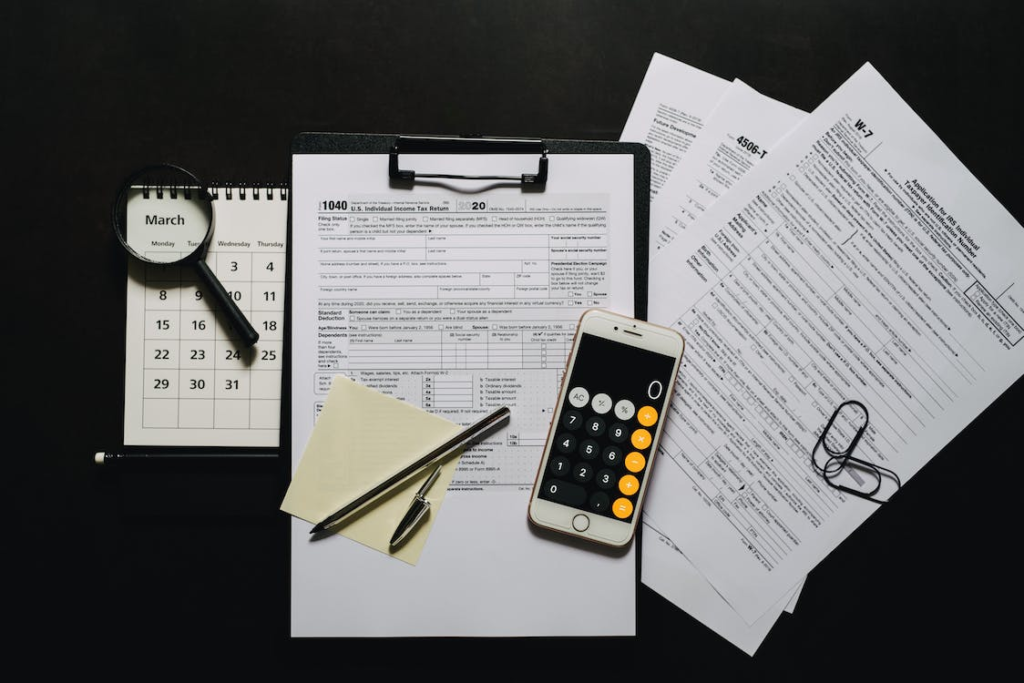The UK has a diverse population, with many foreigners living there and about 5.5 million British people permanently residing abroad. Whether you live abroad permanently or visit the country occasionally for work or personal reasons, you’ll have tax obligations. Since the diversity in the country is high, tax laws vary for foreigners, residents, and non-residents.
Tax laws for non-residents are complex and often require an accountant or tax consultant. With the multiple factors affecting non-residents’ tax status, it’s vital that they understand what applies to them. This guide will explain what you need to know about UK tax while being a non-resident.
First, What’s a Non-Resident?
Taxes in the UK will change significantly depending on your status, i.e., a resident or non-resident. Even though you may be a non-resident in the UK, you can still be a tax resident. Identifying whether you’re a tax resident, non-resident, or just one, is essential. But what is a non-resident? In the UK, you’re automatically a non-resident if you’ve spent less than 16 days in the country. You can also be a non-resident if you spent less than 46 days in 3 previous tax years without becoming a UK resident. In addition, you’re also a non-resident if you work abroad full-time, at least 35 hours a week, and spend less than 91 days in the UK, with less than 30 working days.
The tax rules for residents and non-residents are different. You must first figure out your tax residency status so you not only avoid paying double taxes but also avoid any penalties. HMRC uses the Statutory Residence Test to determine whether someone is a tax resident in the UK. The test also incorporates various factors.
Statutory Residence Test
The Statutory Residence Test is the process that determines if the person with ties to the UK is a tax resident. The test is vital to understand the tax residence status as it will impact how much tax you pay and for those that earn income elsewhere if that income is subject to tax. Failure to accurately declare the status and pay tax will lead to penalties and fines. Since the process is complex, it’s advisable to contact an accountant or tax consultant for help.
There are four components of a Statutory Residence Test:
- The time spent in the UK in a tax year
- The automatic overseas test
- The automatic UK test
- The sufficient ties test
You’re a non-resident if you meet the automatic overseas test but not the automatic UK test or the sufficient ties test. However, if you meet even one of those tests, you will have a UK resident status.

The Days Spent in the UK
Along with the Statutory Residence Test, you also need to calculate the days spent in the country. Anyone who spends more than 183 days in the country in a given tax year will be a UK resident. However, calculating it is not straightforward due to several criteria HMRC has set. It’s subject to three factors: the deeming rule, the number of transit days, and time spent in the UK because of circumstances. Calculating the number of days spent in the UK can be difficult, so it’s best to consult chartered tax advisers & accountants.
Non-Residents and Double Taxation
Once you have your residence status, you can understand how you’ll pay tax in the UK. Non-residents in other countries need to evaluate the double taxation agreements. Many countries have this agreement to ensure that incomes and profits are taxed in both countries and, if applicable, taxes in one place have a reduced rate. People who are a resident of a country with which the UK has a double taxation agreement can claim partial or full tax reliefs on certain income sources.

The Effect of The Agreement on Domestic Laws
A double tax agreement overrides domestic laws in the UK and the country it has the agreement with. For example, if someone is a non-resident and they have UK bank interest, the income will be taxable under UK domestic law. However, if the person was a resident of France, according to the UK-France double taxation agreement, the UK will have to give up its right to the income, and the income will only be taxable in France. The person will have to file a claim with the HMRC to exempt their income from UK tax.
Alternatively, they can allow a set-off tax paid in one country against tax due in another. The UK ‘treaty’ residents get a credit when they pay overseas tax on income they obtained outside the UK. Similarly, people may also receive credit for paying tax on UK-sourced income.
Unilateral Tax Relief
Non-residents that aren’t residents of a country the UK has an agreement with can still claim foreign tax credit relief on the foreign tax they pay, known as unilateral tax relief. When there is no taxation agreement, they can claim a foreign tax credit. This, however, has no impact on the working tax credit or child tax credit. For example, if you pay 15% tax in a foreign country which is your income source, and still have to pay tax in the UK because you’re a resident here, you’ll pay the difference. If the tax rate in the UK is 20%, you’ll have to pay only 5% based on the foreign tax credit.

Non-Residents and Tax Returns
A self-assessment tax return is the declaration of income a person earns in a tax year. The tax returns enable HMRC to calculate how much tax the filer owes in the country or any rebates the filer will receive on the income received in the tax year. Typically, HMRC will evaluate and deem that you must complete a self-assessment tax return and send a notification for it at the end of the tax year. You’ll need to submit the tax return by October 31st if you’re submitting it by paper or by January 31st if you’re submitting it online. You also need to clear all tax payments due to HMRC by the same deadline.
Non-residents, like those still in the UK, must file tax returns on time if they have a UK-sourced income. Typical scenarios that make non-residents applicable to file tax returns are as follows:
- If they’re a director of a UK company.
- If they receive profits due to a UK partnership.
- If they earn an income through self-employment in the UK.
- If they do partial or complete work in the UK, even if they don’t live there.
- If they are in receipt of rental income in the UK.
- If they receive capital gains through sales or disposal of assets in the UK.
In addition, if they receive investments through interests or dividends, they need to declare it to the HMRC. However, this is a more complex area where you’ll likely need the help of a CGT advisor or tax specialist. For those working in the UK, their employer will already deduct tax from their salary. Any work you’ll do in the UK is taxable, and you must file tax returns even if you’re a non-resident. As discussed in the double taxation agreement section, you can also be taxed in your own country.

Completing Tax Returns
Unless you fit one of the criteria above, deciding whether you need to complete tax returns may be difficult. Completing tax returns correctly and on time isn’t something you should assume you have to do or not. You may or may not receive a letter from HMRC, which is why it’s up to you to determine. There are some criteria that will determine if you have to complete tax returns:
- You must complete the Statutory Residence Test to see if you’re a tax resident. If the test reveals that you are a tax resident, even if you’re a non-resident of the country, you must complete tax returns.
- If you receive un-taxed income in the UK, you may be subject to UK tax laws even if you’re a non-resident. For example, you receive rental income from a UK property, are a non-resident landlord, have pensions and dividends, or have employment in the UK.
- If a non-resident receives income from a non-UK source like a holiday rental, non-UK employment, or non-UK investments, they must declare and pay income on it.
- If a non-resident has a UK-taxable income over £100,000, they must pay tax returns per UK tax laws.
- Any non-resident who sells UK property, has shares in a UK company, etc., needs to pay capital gains on it.
Whether you’re British or a foreign national, if any of the above criteria applies, you must pay tax returns. Even if you’re unsure, you may still pay tax returns but must speak to an accountant or tax consultant specialising in non-resident tax laws first.
Non-Resident Tax Return Penalties
Failure to pay tax returns on time will have penalties for non-residents. The penalties are as follows:
- If you file or pay the tax return a day late, there will be an initial penalty of £100.
- If you file or pay the tax return three months late, there will be an automatic penalty of £10 per day which can also go up to £900.
- If you file or pay the tax return six months late, there will be a further penalty of £300 or 5% of the tax that was payable if the return was on time.
- If you file or pay the tax return twelve months late, another penalty of £300 or 5% of the tax will apply.
Please note that you are responsible for telling HMRC about your non-resident status and that you can’t file or pay tax returns through the HMRC website. In addition to the self-assessment tax return form, you’ll have to fill out non-resident pages.

Non-Resident Landlords and Taxes
Property forecasts suggest that the prices will grow 21.5% by 2025. This encourages more investments in real estate rental properties due to high ROI. We’ve already discussed that those that receive rental income on UK property need to file and pay tax returns. This applies even to non-residents regardless of whether they are tax residents in the UK.
Under the Non-Resident Landlord Scheme, landlords must pay income tax on their UK rental income. If the landlord lives overseas, the tenant or letting agent must deduct the tax due before paying the landlord the rent. They also need to pay income tax every three months. When a non-resident landlord files or pays self-assessment tax returns, they can claim the deducted amount that tenant or letting agent paid against their UK tax liability.
The first £1,000 of the rental income is property allowance and is tax-free. When there are multiple property owners, each owner can claim their share of the property allowance and deduct it from gross rental income. Depending on the country they reside in, they can also claim a tax-free Personal Allowance of £12,570. However, those with taxable income above £125,140 can’t claim the Personal Allowance. Lastly, any allowable expense will also reduce the tax bill.

Need Help Paying Your Taxes?
Taxes are complicated to understand when you’re a resident and even more so for non-residents. If you want to file and pay tax returns correctly and avoid penalties, trust IBISS & CO. We are a tax and accounting firm with the best tax advisors in London. Our chartered tax advisers and accountants in London and Walsall will help you understand your tax responsibilities as a non-resident and ensure that it gets done without an issue. We offer general accountancy services as specialist tax services. Our services include handling tax investigations and disputes, self-assessment and tax returns, and we also provide business and tax advice in London and Walsall.
Contact us for our specialist tax services, property tax advice, and more, whether you’re a resident or non-resident of the UK!




